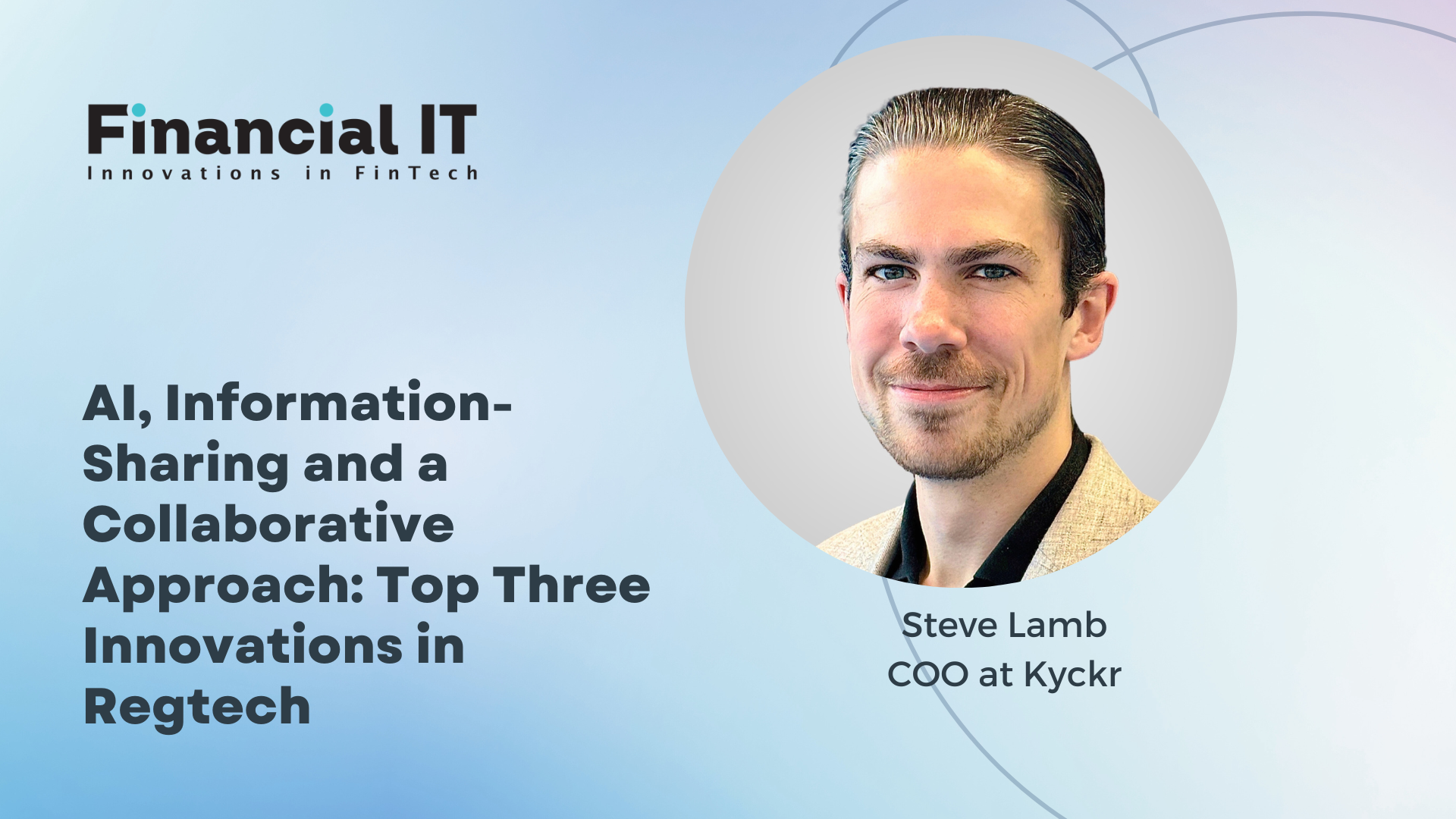AI, Information-Sharing and a Collaborative Approach: Top Three Innovations in Regtech

- Steve Lamb, COO at Kyckr
- 11.07.2023 09:45 am #regtech #ai
The challenges to financial crime prevention are greater than ever. In January, the National Crime Authority reported another record set in the last financial year with 901,255 Suspicious Activity Reports received and processed - a 21% increase on the previous year.
At the same time, we now have technological advances at our disposal that could potentially revolutionise the fight against financial crime, and discussions from the recent Money2020 conference in Amsterdam shows there is a real determination within the industry to come together to solve some of the pain points we have experienced up until now.
At the event, three trends emerged that showcase a new way of thinking about these innovations and the best way to deploy them:
The potential for AI to revolutionise financial crime prevention and detection
There is no doubt about it; everywhere you go, people want to talk about AI, and regtech is no exception. The opportunities these new kinds of technologies open up will have a huge impact on the industry, and there is real hope that it can make a positive difference, shaking up the traditionally heavily manual processes around AML and counter-terrorist financing.
At the recent Money2020 conference in Amsterdam, I attended a session with the Dutch challenger bank Bunq, which has implemented machine learning into its transaction monitoring approach. Despite having to defend their use of these innovations, the application of AI has had a big impact on their suspicious activity detection and reduced the time it takes their analysts to review the alerts.
"95% of [rules-based] alerts are false positives", said AI expert and PhD fellow at Copenhagen Business School Julie Gerlings in a panel on the implementation of responsible AI and high-risk models.
With statistics like this, there is no doubt that there is scope for improvement, and Bunq has shown that this is an area where AI can be vastly useful.
However, as always, it is important to remember that AI is only as good as the data we feed into it. This often gets overshadowed by the hype that new tech advances generate, but it will significantly impact the outcome. If you make an effort to invest in great tech, you need to make sure you feed it great data too.
We also need to remain mindful that any new technological advance that can be used to prevent financial crime will also be available for those looking to commit them.
In other words, it is important to understand how we can use these innovations for good, while keeping one eye on whether and how they are being implemented with nefarious intentions.
"Fraudsters are creative...you can't build static rules for new scenarios...you have to find new ones using AI and machine learning," said Vatsa Narasimha, Chief Executive Officer at ComplyAdvantage, at the Money2020 event.
The growing intersection between fraud and Know-Your-Customer
Another topic being widely discussed is the increasing understanding within the industry that fraud and KYC teams need to work more closely together within organisations to better prevent fraud and money laundering.
Historically these functions (fraud and KYC/AML) have been dealt with by different departments in the organisation, but there is now growing recognition within the industry that they are interconnected and that agile communication between the two could stop financial criminals before they even have had the opportunity to commit crimes.
Pooling resources and sharing critical information between teams early on in the onboarding process would result in higher efficiency and ultimately benefit the organisation as a whole. This is ever more urgent, as technology is moving faster and faster, and fraudsters are taking advantage of financial institutions' sluggishness to adopt the most up-to-date technologies.
Creating an ecosystem to solve industry challenges
Finally, collaboration was hot on the agenda at Money2020, and this ties in nicely with something we at Kyckr have become more aware of - the need for different vendors to collaborate closely with each other. This is not only the case in Regtech but across the fintech spectrum.
Speaking on a panel about preventing risk in fintech at Money2020, Laura Spiekerman, President and Co-founder of identity decisioning platform Alloy, very aptly said that it "takes a village to prevent financial crime".
In today's ever more interconnected world, where technological advances are developing rapidly and ceaselessly, the challenges we face around risk and, specifically, financial crime can seem bigger than ever.
As Spiekerman explained, we all work with different tools and models, and to not let financial criminals in through the gaps, these need to work together. We must provide our customers with the integrated solutions they want and create an ecosystem of closely collaborating partners.
Encouragingly, it is clear that there is a strong resolution from industry leaders and experts to tackle these challenges and responsibly embrace the opportunities that AI opens up for regtech.
We are all standing together at the frontier of technological breakthrough.
Advances like AI could start to turn the tide against money laundering and financial crime - if organisations can only learn to share relevant information and embrace collaboration - from governance institutions to suppliers.





















